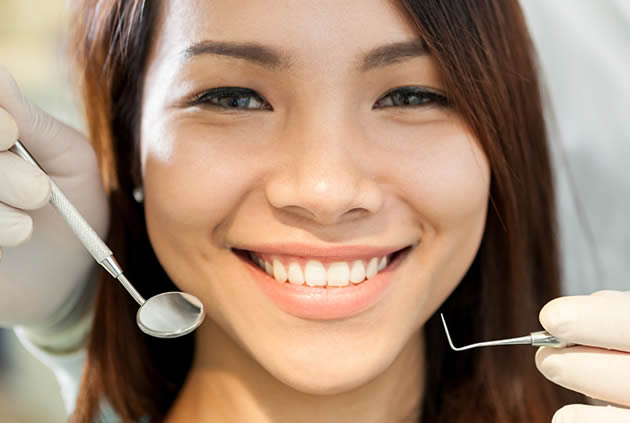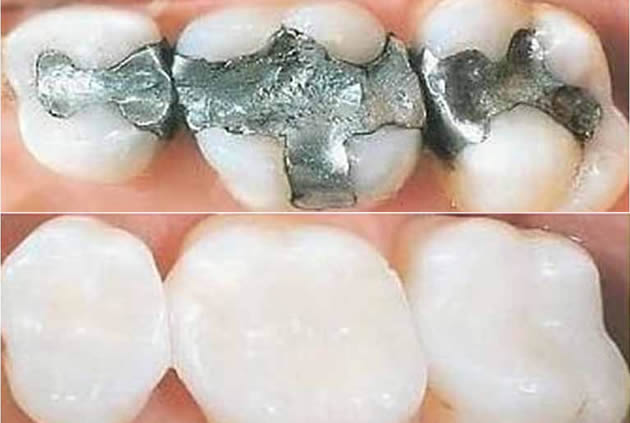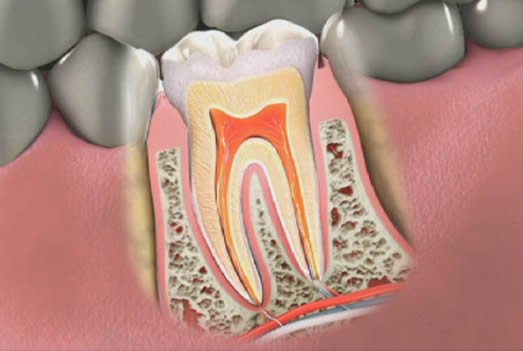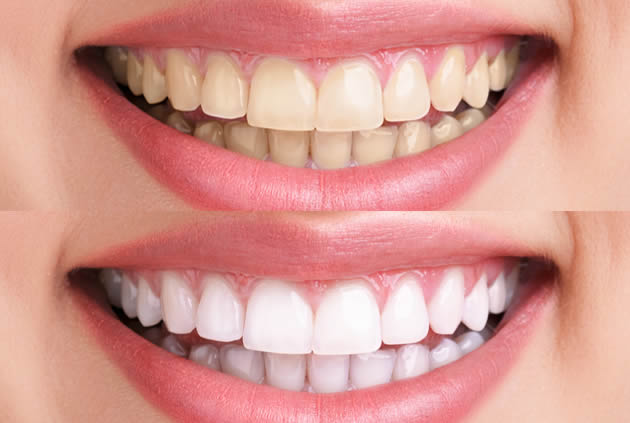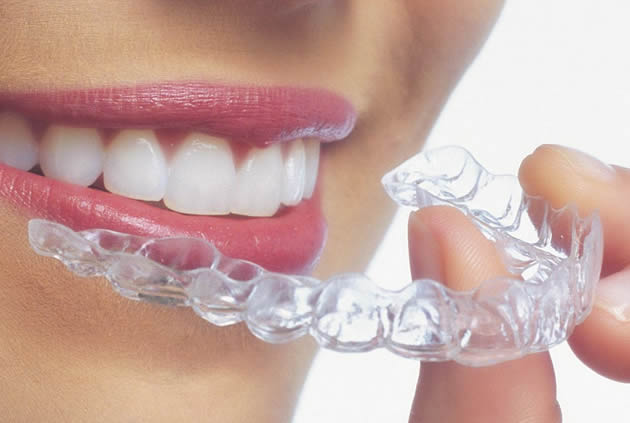
Your body is a little bit like a puzzle. It gives you clues to help you figure out what’s going on within your body. Did you know your mouth can give you hints about things that may be happening elsewhere in your body? Here’s a list of some of the signs your mouth can give you to pay attention to certain other aspects of your health.
Worn teeth and headache
If your teeth are showing extensive wear, you may be grinding your teeth. This would be even a stronger possibility if you’re also experiencing regular headaches, which can be caused by the muscle tension related to teeth grinding. This condition also indicates that you are likely under too much stress, and that you are unconsciously coping with it by grinding your teeth.
Gums covering teeth
If your gums begin to grow over your teeth and you are on medication, it may mean that your medication is at fault. Some medicines can cause your gums to overgrow, and the dosage needs to be adjusted.
Mouth sores
An open sore in your mouth that doesn’t go away in a couple of weeks can be an indicator of oral cancer. Numbness and unexplained bleeding in your mouth are other signs. Smokers and people over age 60 are at the most risk, but that doesn’t mean it doesn’t affect others too. See your dentist to make sure all is okay.
Cracked teeth
If your teeth begin to crack or wear extensively, you may have gastroesophogeal reflux disease (GERD). It’s a digestive disease that allows stomach acid to flow back into your food pipe and mouth. This acid can cause your teeth to deteriorate. Additional signs of GERD are acid reflux, heartburn, and dry mouth.
Unclean dentures
If you wear dentures, make sure you remove and clean them regularly. Inhaling food debris from your dentures that makes its way to your lungs can lead to pneum
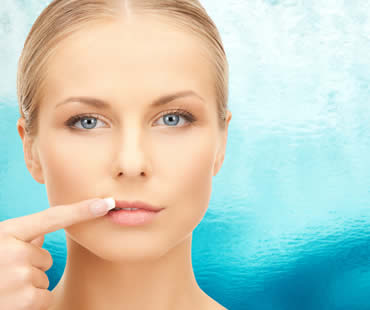
Fun in the summer sun can cause unpleasant side effects such as cold sores and fever blisters. Brought on by herpes simplex virus type 1 (HSV-1), cold sores and fever blisters are transmitted from person to person by saliva or by skin contact. With cold sores, you generally develop clusters of tiny blisters on the lip. Most people are exposed to HSV-1 before age 10. After the first infection, the virus remains inactive until stress, illness, or sun exposure causes a new outbreak.
During the first exposure, you may have headache, nausea, fever, and/or vomiting. Patients may also have painful swelling and open mouth sores. Most of the time, cold sores or fever blisters appear on the edges of your lips. Usually, these outbreaks start with tingling or burning followed by swelling or redness. One or more blisters will typically appear within 24 to 48 hours.
Initial symptoms can last for 7 to 14 days. When the cold sores or blisters reappear, they generally crust over in about four days and then heal within 10 days. You may want to visit your doctor or dentist the first time you develop cold sores or fever blisters, but after that, you shouldn’t need medical attention. Keep the area clean and apply topical medication to lessen symptoms as well as promote healing.
Preventing a first infection for loved ones involves making sure that no one with an active fever blister kisses your kids or other family members. Sunscreen can help protect your lips from cold sores brought on by too much time in the sun.
Dentist in Baltimore
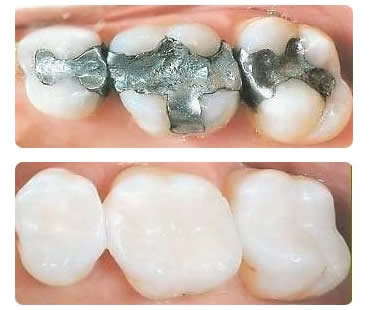
At one time, metal fillings were the only choice to repair tooth decay. Now, many dentists have switched to composite resin fillings, which match natural-tooth color so they don’t compromise the appearance of your smile. Tooth-colored fillings have gained popularity, and many dentists only offer this option. In recent years, there has been a strong push to eliminate amalgam fillings all together.
Amalgam fillings are made of several metals, with up to a 50 percent composition of mercury. It is widely known that mercury is toxic to the body. Some of the concern about amalgam fillings is the affect mercury has on the body, including:
• Causing damage to the kidneys
• Contributing to infertility
• Impacting the nervous system
• Interfering with the function of the thyroid and pituitary glands
• Posing unknown risk to a fetus
• Weakening the immune system
Because each person is different, you may have no reaction to the amalgam fillings. Over time, though, these restorations may change shape or crack, which can cause them to leak. If the fillings don’t hold up, the area may become susceptible to additional damage or decay.
At your checkup, have the dentist evaluate any old fillings to make sure they are still in good condition. You can also discuss the benefits of replacing amalgams with composite fillings. The newer restorations blend with your natural tooth coloring and require less removal of health tooth structure, which allows for a more conservative repair.
If you need a dentist in Baltimore contact us today
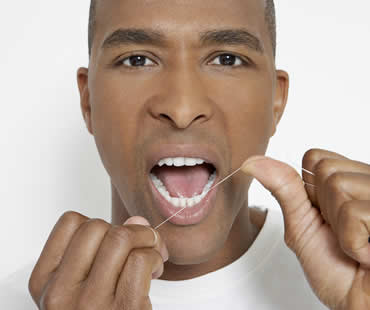
Cleaning between your teeth and along your gums with dental floss is just as important as using your toothbrush. Although many people complain about flossing or completely avoid doing it, there should be no excuse for neglecting this part of your dental hygiene routine.
Flossing your teeth allows you to get rid of food particles and plaque that is caught between your teeth. It is able to reach areas that your toothbrush can’t. Therefore, flossing plays a key role in preventing tooth decay, gum disease, and bad breath.
You should floss your teeth at least once every day, using a gentle touch so you don’t damage your gums. You can use waxed or unwaxed dental floss, depending upon your preference and which one works best for you. Interdental cleaning aids like picks and sticks may also be carefully used, as well as floss holders. These tools are especially helpful for those with arthritis and vision problems.
Another item that may help remove trapped food debris is a water spray tool called an oral irrigator, although it shouldn’t replace flossing. The same is true for mouthwash, which may be used to help rinse away germs and temporarily freshen breath. You can add these items to your hygiene routine, but giving up flossing should not be an option. Using dental floss is the very best way to attack food particles and plaque so that you have the greatest chance for a healthy mouth.
Dr. Litwin is a family and cosmetic dentist in Baltimore

Why wait until you have a toothache, bleeding gums, bad breath, or other problems to decide it’s time to start focusing on your oral health? Your mouth and your whole body can benefit from maintaining good oral health. Here is some simple advice that will help you along the path to a healthy smile.
Brushing and flossing
Tooth decay and gum disease are both preventable with proper brushing and flossing. Brush with a soft-bristled toothbrush and fluoride toothpaste, using a circular motion. It’s best to brush after every meal, but twice a day should be the minimum. Gently floss your teeth daily to remove food particles and bacteria between your teeth.
Eating right
Focusing on eating foods from each food group will aid your oral health in addition to your overall health. Not getting essential nutrients in your diet increases your risk of gum disease, and also makes it more difficult for your body to resist infection. Eat low fat dairy items, lean proteins, vegetables, fruits, and whole grains. Look for foods low in sugar, which can lead to tooth decay. Avoid snacking too much during the day when you aren’t going to brush your teeth afterwards, and drink plenty of water throughout the day.
Seeing your dentist
Visit your dentist at least twice a year for checkups. During these appointments, your dentist will look for problems and professionally clean your teeth. Delays in treatment of some conditions can cause them to worsen to the point that treatment may be more painful, difficult, or costly. Your dentist will help you keep your teeth and gums healthy so that you can keep smiling as long as possible.
If you live in the Baltimore area contact us today

Did you know that it takes fewer muscles to smile than frown? This powerful tool often gets lost in the busyness of our lives. Not only is smiling easier on your face, but it can significantly improve your mood and give somebody else’s day a lift. The benefits of smiling include:
Connects you with other people
When you share a smile with another person, you form an instant bond. By boosting that individual’s mood, you can reduce stress levels and possibly encourage that person to try on a smile. Actually, you can use a smile as currency to successfully navigate awkward social situations and gather any assistance you need.
Changes your perspective
If you feel anger or stress, smiling can give your attitude a much-needed adjustment. Typically, smiling enables your body to release endorphins, wonderful chemicals that make you feel happy.
It doesn’t cost a thing
Often, we get busy and don’t have the time, energy, or resources to help others. Your smile brightens the lives of anyone who sees it and it only takes a minute or less.
Helps fight illness
People who smile a lot tend to be more optimistic, which can promote a stronger immune system and keep you healthy.
Why not smile?
Try to remember that if you don’t smile, your other options are frowning or wearing a blank expression across your face. Given those choices, smiling seems like the best alternative.
Boosts your confidence
When you smile, you often walk taller and carry yourself in a more self-assured manner.
Smile makeover dentist in Baltimore












